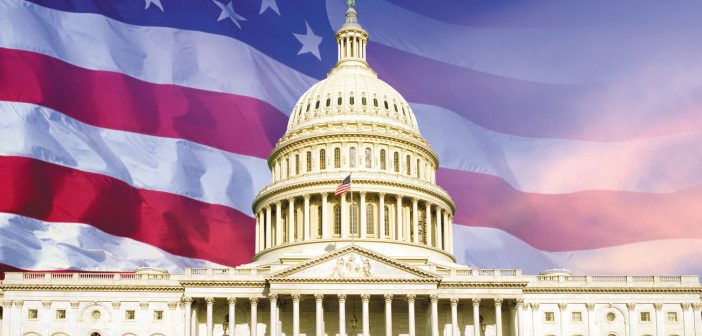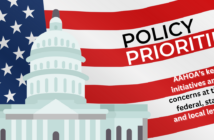by SEAN GROSSNICKLE
Millions of vaccines have been distributed, hotel metrics have picked up, and lawmakers in Washington, D.C. show no signs of slowing down their legislative agendas. What legislation could America’s hoteliers expect to see from the Capitol next?
“BUILD BACK BETTER” AND BEYOND
Political power in Washington, D.C., tends to ebb and flow, especially after a competitive election cycle. The 2020 elections set the Democratic Party on a promising path with control of the White House and both Chambers of Congress, albeit with narrow majorities in the latter. Some campaign promises find their way onto the floors of Congress and then on to the Resolute desk, while others get ensnared in the partisan gridlock hanging over the nation’s capital. Securing a key legislative victory in their first 100 days, President Joe Biden and Vice President Kamala Harris led their party to pass the American Rescue Plan (ARP), the first of Biden’s three-part “Build Back Better” recovery agenda. The ARP was the sixth major relief package to pass and delivered $1.9 trillion in relief measures. Shortly after it passed, President Biden announced part two of the White House’s agenda, the American Jobs Plan (AJP).
The AJP focuses on major investments in domestic infrastructure and manufacturing, lacking some of the small business provisions included in its predecessor. At the time this article was penned, there were no bills introduced on the AJP as Congress and the Biden Administration continued to discuss the content of the plan. Still, the narrative in Washington, D.C., has revolved around the AJP proposal in recent weeks. In familiar fashion, Republicans are opposed to the plan as Democrats strive to maintain party unity, especially in the Senate where a few moderate Democrats are raising doubts.
Behind the scenes, AAHOA is keeping a tab on other proposed legislation that could assist the hospitality industry. Here is a brief overview of two standalone federal bills targeted toward the travel and tourism industry.
PROTECTING TOURISM IN THE UNITED STATES ACT
Senators Amy Klobuchar (D-MN), Roy Blunt (R-MO), Catherine Cortez Masto (D-NV), and Kevin Cramer (R-ND), co-chairs of the Senate Travel and Tourism Caucus, sent a letter to the U.S. Department of Commerce (USDOC) Secretary Gina Raimondo to request further information on the department’s recovery plan. In the letter, the senators call on the USDOC to examine the return of international travel, bringing back the travel and tourism workforce, and report on both the short- and long-term strategies the department has developed to assist recovery efforts.
Prior to sending the letter, this bipartisan group of senators introduced the Protecting Tourism in the United States Act (S. 115), “a bill to direct the Secretary of Commerce to conduct a study and submit to Congress a report on the effects of the COVID-19 pandemic on the travel and tourism industry in the United States.” This bill also would secure funding for Brand USA, a public-private partnership to encourage travelers to visit America, through 2027.
HOSPITALITY AND COMMERCE JOB RECOVERY ACT OF 2021
Senators Catherine Cortez Masto (D-NV) and Kevin Cramer (R-ND) introduced the Hospitality and Commerce Job Recovery Act of 2021 (S. 477), “a bill to amend the Internal Revenue Code of 1986 to create a refundable tax credit for travel expenditures.” The bill would create a temporary business tax credit to cover costs of attending structured events, such as a convention or trade show. It also proposes other tax credits for individual travelers, restaurants, and food and beverage companies, and tax deductions for entities in the entertainment industry.




